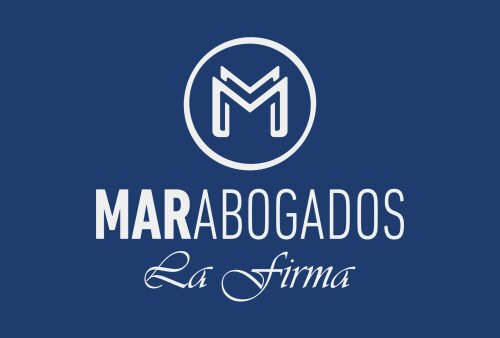Best Mortgage Lawyers in Las Palmas de Gran Canaria
Share your needs with us, get contacted by law firms.
Free. Takes 2 min.
Free Guide to Hiring a Real Estate Lawyer
List of the best lawyers in Las Palmas de Gran Canaria, Spain
About Mortgage Law in Las Palmas de Gran Canaria, Spain
Mortgage law in Las Palmas de Gran Canaria, within the Canary Islands of Spain, governs the legal relationship between borrowers and lenders when real estate is used as security for a loan. A mortgage, or “hipoteca” in Spanish, allows individuals and businesses to purchase property even if they do not have the total amount upfront. Instead, the lender (usually a bank) loans the money and secures the loan against the property, meaning the property can be repossessed if the borrower defaults. The process and laws surrounding mortgages are largely dictated by national Spanish legislation, but with specific local procedures and nuances that apply in Las Palmas de Gran Canaria.
Why You May Need a Lawyer
There are several scenarios in which legal support is highly recommended regarding mortgages in Las Palmas de Gran Canaria. Typical situations include:
- Purchasing residential or commercial property, especially as a non-Spanish resident
- Negotiating mortgage terms with Spanish financial institutions
- Translating and interpreting mortgage documents that are in Spanish
- Dealing with foreclosure or disputes about missed mortgage payments
- Refinancing an existing mortgage or changing payment terms
- Resolving title or encumbrance issues with the property
- Inheritance situations where property with existing mortgages is passed down
A lawyer can help protect your interests, ensure you understand all the implications, and navigate local procedures and legal obligations.
Local Laws Overview
Key aspects of mortgage law in Las Palmas de Gran Canaria are regulated primarily at the national level through Spain’s Civil Code and the Law on Mortgage Market Regulation (Ley Hipotecaria), but some unique local customs, language differences, and administrative requirements can apply.
- All mortgage contracts must be concluded before a notary and registered with the local Land Registry (Registro de la Propiedad).
- The standard maximum loan-to-value ratio is generally about 80% for primary residences and slightly lower for investment properties or non-residents.
- Borrowers must provide comprehensive documentation, including proof of income, Spanish identification (such as NIE number), and details about the property.
- There are strict rules regarding mortgage default, with a formal foreclosure process if payments are missed. However, recent reforms have strengthened consumer protections, including limits on floor clauses (cláusulas suelo) and early repayment fees.
- Administrative fees, taxes (like the Stamp Duty - Impuesto de Actos Jurídicos Documentados), and notary fees are required as part of the mortgage process.
- Special regional considerations may apply, especially in the registration and transfer of property located within the Canary Islands.
Frequently Asked Questions
What is a mortgage in Spain and how does it work?
A mortgage in Spain is a loan secured against a property. The lender provides funds for purchasing property, and the property itself serves as collateral. If the borrower fails to meet repayment obligations, the lender can repossess the property following legal procedures.
Can foreigners obtain a mortgage in Las Palmas de Gran Canaria?
Yes, foreign nationals can obtain a mortgage in Spain, including in Las Palmas de Gran Canaria. However, the deposit required is often higher (sometimes 30 to 40 percent of the property value), and additional documentation may be required.
What are the typical costs associated with taking out a mortgage?
Costs include appraisal fees, notary fees, registration fees, administrative charges, and Stamp Duty. Borrowers should also factor in property transfer tax if purchasing from a private seller.
How much can I borrow for a mortgage?
Banks typically lend up to 80 percent of the property’s appraised value for residents and about 60 to 70 percent for non-residents and secondary homes.
What documents are required to apply for a mortgage?
Usual documentation includes a valid passport, NIE (foreigner’s tax identification number), proof of income, tax returns, bank statements, credit reports, and details about the property.
What happens if I default on my mortgage?
If you miss mortgage payments, the lender will initially contact you to resolve the issue. Eventually, if the default continues, the lender may initiate foreclosure proceedings, which can result in the property being repossessed and sold at auction.
Are there consumer protections for mortgage borrowers in Spain?
Yes, especially following national reforms, such as limits on abusive floor clauses in interest rates and increased transparency requirements for mortgage contracts. Borrowers must now be given certain information in advance, including a breakdown of all costs.
Can I repay my mortgage early?
Early repayment is possible, but banks may charge a fee for early repayment, which is regulated by law. These fees are typically lower than in the past but should be checked in your specific contract.
How is property registered in Las Palmas de Gran Canaria?
All property purchases and mortgages must be signed before a notary and registered at the local Land Registry office. This ensures that the buyer’s and lender’s rights are officially recognized and enforceable.
Should I use a lawyer when taking out a mortgage?
While not legally required, it is highly recommended to engage a lawyer who specializes in Spanish and Canary Islands real estate law to review documents, ensure compliance, and protect your interests during negotiation, signing, and registration.
Additional Resources
If you need further information or support, consider reaching out to the following resources:
- Registro de la Propiedad de Las Palmas - The local Land Registry, where all property and mortgages must be officially recorded.
- Colegio de Abogados de Las Palmas - The local bar association, which can refer you to qualified lawyers specializing in mortgage and real estate law.
- Notarios de Las Palmas - Public notaries, essential for the legal formalization of mortgage and sale contracts.
- Banco de España - The central bank’s website provides information on mortgage regulations and consumer rights.
- Spanish Consumer Protection Agencies (OMIC) - Offices for consumer rights and dispute resolution.
Next Steps
If you are considering a mortgage in Las Palmas de Gran Canaria, first collect all necessary documentation and obtain a Spanish NIE if you do not already have one. Compare mortgage offers from various banks and ensure you understand the terms and associated costs. Engage a local lawyer who can translate, advise, and represent your interests at each stage of the process, from negotiation through to notary signing and property registration. If you encounter any challenges or disputes, consult your lawyer promptly or contact the relevant official bodies listed above. Careful preparation and professional legal assistance can help you avoid complications and make your property purchase or refinancing process as smooth as possible.
Lawzana helps you find the best lawyers and law firms in Las Palmas de Gran Canaria through a curated and pre-screened list of qualified legal professionals. Our platform offers rankings and detailed profiles of attorneys and law firms, allowing you to compare based on practice areas, including Mortgage, experience, and client feedback.
Each profile includes a description of the firm's areas of practice, client reviews, team members and partners, year of establishment, spoken languages, office locations, contact information, social media presence, and any published articles or resources. Most firms on our platform speak English and are experienced in both local and international legal matters.
Get a quote from top-rated law firms in Las Palmas de Gran Canaria, Spain — quickly, securely, and without unnecessary hassle.
Disclaimer:
The information provided on this page is for general informational purposes only and does not constitute legal advice. While we strive to ensure the accuracy and relevance of the content, legal information may change over time, and interpretations of the law can vary. You should always consult with a qualified legal professional for advice specific to your situation.
We disclaim all liability for actions taken or not taken based on the content of this page. If you believe any information is incorrect or outdated, please contact us, and we will review and update it where appropriate.









